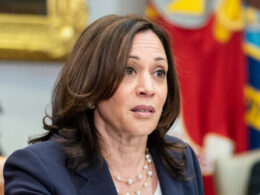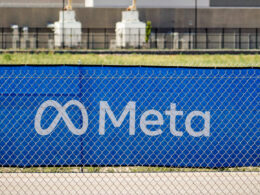Donald Trump received a rude awakening Friday night from Fox News, when it reported fresh polling in four key states ( Michigan, Minnesota, Pennsylvania and Wisconsin) that showed three of them too close to call and the other one slipping away.
It’s not ideal for a presidential campaign to peak roughly 100 days before an election, but these surveys, especially contrasted with other polling better for Trump, show the former president’s case against President Biden doesn’t translate to one against Vice President Kamala Harris as easily as GOP strategists might have hoped.
They also show a race arguably slipping away under Trump’s nose.
Especially given a common thread of these polls seems to be a “vibe” check; in other words, battleground voters like Kamala Harris more than they do Donald Trump right now, and it’s unclear how the Republican candidate changes that.
As the Fox polls show, no matter who is ahead or behind, Trump is under water everywhere and Harris isn’t. Great for scuba diving but not great for close elections.
In Michigan, which Biden won by fewer than 3 points in 2020, the Harris-Trump race is tied at 49% in a head to head, though Trump is up 45% to 43% against Harris in a race including Robert Kennedy Jr. (5%), Jill Stein (1%) and Cornel West (1%).
Other positives for Trump, relatively speaking: He gets 17% of the black vote here, far better than the 0% he got in a recent Detroit News-WDIV-TV live-dial Michigan poll that showed a tied race. Trump also has a plurality of independents here with 36%, more than a double-digit lead over Harris and Kennedy.
Still, Harris has a higher net-favorable rating than Trump, albeit by 1 point.
Wisconsin, decided by less than a percentage point in the last two elections, sees a 1-point Trump lead in the binary battle and a race tied at 46% in the expanded field. Harris has support here from 92% of Democrats and 51% of women in the larger battle. Trump has 52% of men and 89% of Republicans and is +2 with independents.
Just as in Michigan, though, Harris has a better net favorability: by 5 points. She’s at 49% approval and 49% disapproval; Trump is at 47% and 52% respectively.
Pennsylvania, which was a little more than a – point race in 2020, is a dead heat here in the two-way matchup: 49% to 49%.
That sounds great, but Trump has reason to worry, taking just 85% of Republicans in the expanded field, where he is down 45% to 43%.
Other red flags in the larger field: Trump leads by just 8 points with men and 4 points with white voters.
And when it comes to approval, Harris is treading water with 49% approval and disapproval, while Trump is 7 points under (46% approval; 53% disapproval).
Minnesota sees a 6-point Harris lead in a binary battle and a 7-point lead in an expanded field where Trump takes just 84% of Republicans and clings to 5-point leads with men and white voters. She is 4 points above water in favorability, a 17-point net advantage over Trump.
Republicans blame the media or blame Democrats for changing presidential candidates before the convention. While those are reliable punching bags to be sure, playing the excuse game more than three months before the election is less effective than coming up with a winning strategy.
The trouble is that when it comes to the race against Harris, top Trump strategists seem to be caught flat-footed regarding the major problem facing the GOP ticket post-convention: changing the “vibes” that seem to all be in Harris’ favor since Biden stood down last weekend.
During an appearance on Friday’s Brian Kilmeade Show, Trump consultant Chris LaCivita vowed his campaign would provide a “split screen all day long” between his candidate and the vice president on various issues.
He then suggested it was premature to book a September debate between Trump and Harris because Democrats “don’t have a nominee yet” and there is an “open window for someone to challenge her.”
“She doesn’t set the tone . . . we’re setting the agenda and implementing it,” LaCivita said, sounding like the Trump campaign is 10 points up instead of in a margin-of-error race where his candidate is struggling in terms of key metrics.
Is there time to course correct?
Probably.
But is there any interest?
To be determined.










